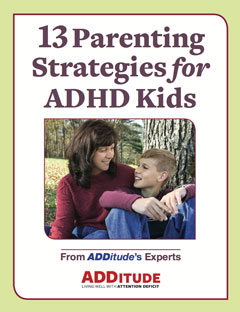Do you wonder why some children with ADHD lie, even when they know that you know they are fibbing? It's the same reason they may cheat at a game, make excuses, and refuse to take responsibility. They feel they are not in control of their behavior or the situations they face, so they make bad choices. Then they realize what they’ve done, feel ashamed, and find a way to cover it up. What can you do to minimize fibbing? Try these tips:
1) Stay cool. It is difficult to stay calm when your child appears to lie effortlessly, but you must. Your child thinks, "I don't want to mess up all the time. Now I feel exposed, and my parents think I'm a bad kid. I can't take that shame, so for self-preservation I am going to lie." If you lecture or lose it emotionally, your child will never feel safe in telling the truth.
2) Get to the root of the issue. Lying isn't the real problem; he lies to hide his impulsivity. Parents need to improve their child's impulse control. Walk with him into a video game store, look around, and walk out without purchasing anything, despite his pleading. Have him leave behind a few French fries when eating at McDonald's.
3) Speak to your child like an adult. Say, "Jacob, I know you lied because you made a mistake and didn't want to get caught. You felt like you were out of control, so you made up a story. I'm not mad at you -- I want to help you. Your lying doesn't make me not love or like you anymore, but it does mean you've lost some of my trust. I'd like to give you an opportunity to earn it back."
4) Role-play. Giving a consequence for lying won't change anything; you are only letting the child know he did something wrong (he already knows that).
Instead, create a routine in your family when someone needs to be honest about something unpleasant. "Jacob, in our family, we're going to say the word 'popcorn' when we need to have a difficult talk. When you say that word, I'm going to sit down and listen -- I promise I won't overreact or lecture you. So let's practice doing that the next time you want to lie."
Your child should always see home as a safe place where we all can be imperfect and grow through our struggles.
This article appears in the Winter 2012 issue of ADDitude.
SUBSCRIBE TODAY to ensure you don't miss a single issue.
Talk about your child's behavior challenges. Visit the Parents of ADHD Children support group on ADDConnect.




